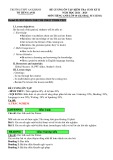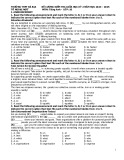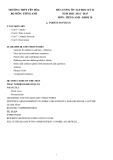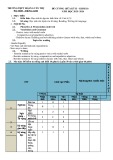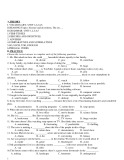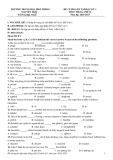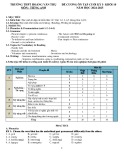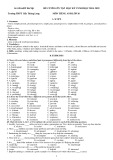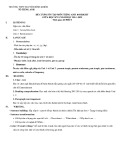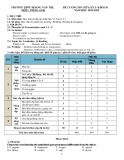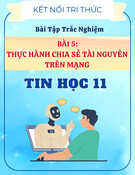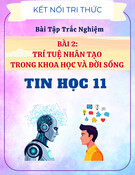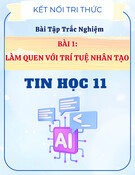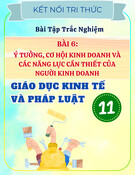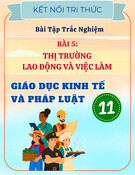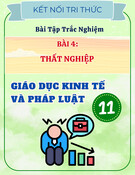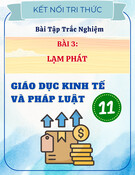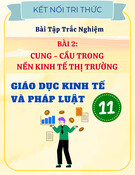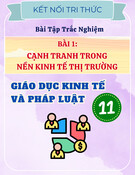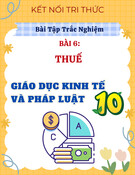
§Ò c¬ng «n tËp c¶ n¨m TiÕng Anh 10
®Ò c¬ng «n tËp c¶ n¨m
M«n TiÕng Anh -Lớp 10
A/ Accent mark: D u nh n/ Tr ng âmấ ấ ọ
1. Đi v i nh ng t g m có 2 ho c 3 v n, tr ng âm th ng r i ố ớ ữ ừ ồ ặ ầ ọ ườ ơ vào v n đuầ ầ .
Ex: rísky, flóra, áudience, cháracter,........
2. Đi v i nh ng t g m có 4 v n (ho c nhi u h n), tr ng âm th ng r i vào v n th 3 ố ớ ữ ừ ồ ầ ặ ề ơ ọ ườ ơ ầ ứ k tể ừ
cu iố.
Ex: minórity, metropólitan, commúnicate, varíety, ........
3. Đi v i nh ng t t n cùng có các v n nh : ố ớ ữ ừ ậ ầ ư -ion, -ic, -ian, tr ng âm th ng r i vào ọ ườ ơ v n phíaầ
tr cướ .
Ex: emótion, competítion, scientífic, photográphic, olýmpic, electrícian, Confúcian, .....
4. Đi v i nh ng t t n cùng có các v n nh : ố ớ ữ ừ ậ ầ ư -oo, -oon, -ee, -een, -eer, -ese, -ette, tr ng âmọ
th ng r i vào ngay ườ ơ các v n nàyầ.
Ex: bambóo, shampóo, cartóon, afternóon, referée, employée, cantéen, thirtéen, enginéer,
Vietnamése, Chinése, cigarétte, ...........
5. Đi v i nh ng t có các ti n t (ti p đu ng ) nh : ố ớ ữ ừ ề ố ế ầ ữ ư in-, im-, ir-, re-, pre-, dis-, de-, be-, ex-,
en-, tr ng âm th ng r i vàoọ ườ ơ v n phía sauầ.
Ex: insíde, impóssible, irrégular, repéat, prevíew, discúss, deféat, begín, excíted, enjóy, represént,
indepéndent, ........
B/ Sound: Phát âm
1. Chú ý các ph âm đã h c trong SGK t Unit 9- 16.ụ ọ ừ
2. Đng t t n cùng b ng -ED có 3 cách phát âm là: /id/, /t/, /d/.ộ ừ ậ ằ
a. Đi v i nh ng đng t t n cùng là: ố ớ ữ ộ ừ ậ -t, -d, khi thêm -ED s phát âm là /id/.ẽ
Ex: wanted, collected, decided, needed,.......
b. Đi v i nh ng đng t t n cùng làố ớ ữ ộ ừ ậ : -c, -f, -k, -p, -s, -x, -sh, -ch, khi thêm -ED s phát âm là /t/.ẽ
Ex: practiced, stuffed, looked, stopped, missed, fixed, washed, watched,.......
c. Đi v i nh ng đng t t n cùng là ố ớ ữ ộ ừ ậ các ph âm còn l i ho c nguyên âmụ ạ ặ , khi thêm -ED s phátẽ
âm là /d/.
Ex: enjoyed, stayed, managed, cleaned, arrived, called,.......
3. Đng t / danh t t n cùng b ng -S có 2 cách phát âm là: /s, /z/.ộ ừ ừ ậ ằ
a. Đi v i nh ng đng t / danh t t n cùng làố ớ ữ ộ ừ ừ ậ : -p, -f, -th, -k, -t khi thêm -S s phát âm là /s/.ẽ
Ex: stops, books, cuts, months, roofs,.......
b. Đi v i nh ng đng t / danh t t n cùng là ố ớ ữ ộ ừ ừ ậ các ph âm còn l i ho c nguyên âmụ ạ ặ , khi thêm -S
s phát âm là /z/.ẽ
Ex: enjoys, stays, dogs, pens, tables, lives,.......
1. Simple present ( hiện tại đơn )
S + V (s/es)
Ex: I speak English ./ He speaks English
Ex: Do you speak English ? / Does he speak English?
Ex: I don’t speak English ./ He does not speak English.
TrÇn ¸i – tranaidh@Gmail.com Trang
1/24

§Ò c¬ng «n tËp c¶ n¨m TiÕng Anh 10
Use : - HTĐ được sử dụng để chỉ cac thoi quen, sở thich , cac sự kiện đang diễn ra hang
ngay ,cac sự kiện trong kế hoạch hoặc cac sự việc thường xuyen xảy ra.
Ex: I play tennis every day.
Ex: The train leaves every morning at 8 am
-HTĐ được dung để chỉ những sự việc , hiện tượng mang tinh chất quy luật hoặc
khai quat.
Ex: Cats like milk
EX: New York is a big city
-HTĐ được sử dụng để diễn tả một hanh động sẽ xảy ra trong tương lai đã được
xac định trước.
Ex: The train leaves tonight at 6 p.m
EX : When does class begin tomorrow?
2. Simple past ( Quá kh đnứ ơ )
S + V+ ed/ irregular verbs
You called Debbie
Did you call Debbie
You didn’t call Debbie
Use : - QKĐ diễn tả hanh động đã xảy ra tại một thời điểm cụ thể trong qua khứ.
I saw a movie yesterday
Last year , I didn’t travel to Korea.
-QKĐ được dung để diễn tả một chuỗi cac hanh động đã xảy ra trong qua khứ.
I finished work , walked to the beach, and found a nice place to swim.
He arrived from the airport at 8:00, checked into the hotel at 9:00, and met the others at 10:00
_ QKĐ được dung để chỉ một qua trinh đã kết thuc trong quá khứ.
I lived in Brazil i 1990
Mary studied English five year ago.
3. Adverbs of frequency ( cac trạng từ chỉ tuần suất)
-Cac trạng từ nay được sử dụng để diễn tả mức độ thường xuyen của một hanh
động nao đó.
We often went camping when we were children.
-Cac trạng từ nay bao gồm : Always, usually, frequently, often, sometimes,
occasionally, rarely, seldom,hardly, ever, never.
-Khi sử dụng với động từ thường , cac trạng từ thường đứng giữa chủ ngữ và
động từ chinh.
David occasionally visits us on Sundays.
-Khi sử dụng với động từ to be, cac trạng từ nay thường đứng sau động từ.
She is often ill in winter.
4. Wh- questions ( c©u hỏi với từ để hỏi bắt đầu bằng Wh)
-Câu hỏi với từ để hỏi bắt đầu bằng –Wh cho phep người hỏi tim ra được cac
thông tin về cac chủ đề như sau.
When ? ( khi nao ?) Time ( thời gian)
TrÇn ¸i – tranaidh@Gmail.com Trang
2/24

§Ò c¬ng «n tËp c¶ n¨m TiÕng Anh 10
Where ? (ở đâu ?) place (nơi chốn)
Who ? (ai ? ) person ( người)
Why ? ( tại sao ?) reason ( lý do)
How ? ( như thế nao ?) manner (cach thức)
What ? ( cai gì ? ) object, idea,action (vật thể, ý
kiến, hanh động)
-Một số từ để hỏi khac giup người hỏi tim kiếm được những thông tin cụ thể.
Which one ? ( cai nao ) Choice of alternatives( lựa chọn)
Whose ? ( của ai ? ) Possession ( sở hữu)
Whom ? ( ai ?) person (người –tân ngữ)
How much ? ( bao nhieu?) price,amount (non-count) gia cả,
số lượng( danh từ không đếm được)
How many ? (bao nhieu?) Quantity (count) số lượng (danh từ đếm được)
How long ? ( bao lâu?) Duration( qua trinh)
How often ? ( bao lâu 1 lần) Frequency( mức độ thường xuyen)
How far ? ( bao xa ?) Distance ( khoảng cach)
What kind of? ( loại nao?) Description (mieu tả)
Wh- question: Make Wh-question for the following sentences:
11. My aunt and uncle live in Chicago.>> Where
12. We often have dinner at 7:00 pm. >> What time
13. I am reading an English book at the moment. >> What
14. It takes me 30 minutes to go to school. >> How long
15. She speaks English very fluently. >> How
16. I have written over twenty novels. >> How many
17. This street is twenty kilometers long. >> How long
18. I spent 10 dollars on this shirt. >> How much
19. I have been learning English for 5 years. >> How long
20. She will be married to a rich man. >> Who
21. Tom goes to the library twice a week. >> How often
22. I went to school late because I missed the bus. >> Why
23. She is a doctor. >> What
24. They were watching a game show. >> What
25. He like studying Math. >> What subject
26. The weather is very nice in this country. >> What
27. She was born in Dam Doi In 1985. >> Where and when
28. She wanted to become an English teacher.
29. They are cutting trees in the forest for wood. >> For what
30. There are forty-five students in my class. >> How many
31. They do their homework at night. >> When
32. Mr. Robertson came to the party alone. >>Who
33. The car is across the street from the house. Where
34. She felt better after she took a nap. >>How
35. My sister called her boyfriend yesterday >>When
36. That is an English book. >> What
37. She talked to him for an hour.>> How long
38. She was eating a sandwich. >>What
TrÇn ¸i – tranaidh@Gmail.com Trang
3/24

§Ò c¬ng «n tËp c¶ n¨m TiÕng Anh 10
39. Their favorite kind of music is Latin Jazz. >>What
40. He is going to work right now. >>Where
5. Động từ đi với -ing vµđộng từ nguyen thể ( Gerunds and Infinitives)
a. Động từ đi cung với –ing được gọi lµ dang động từ. Cac danh động từ được sử dụng lµm
chủ ngũ , bổ ngữ vµ t©n ngữ của c©u.
Reading helps you learn English . ( chủ ngữ)
Her favorite hobby is reading ( bổ ngữ)
John enjoys riding bike . (tân ngữ)
-Phủ định danh động từ bằng c¸ch them not vao phia trước
The best thing for your health is not smoking.
Verbs followed by the gerund (động từ theo sau bởi danh động từ)
-admit (v) : Chấp
nhận
-anticipate ( v) : biết
trước, đoán trước
-avoid ( v) tr¸nh khỏi
-keep = cotinnue (v) tiếp
tục
-loathe ( v) ghê
tởm , ghét
-mean= involve (v) nghĩa là
,có ý muốn
-mind (v) chú
ý, lưu ý, để ý
-consider (v) cân
nhắc
- defer (v) trì
hoãn, làm theo
-delay (v) ho·n
lại
-detest (v) ghét cay
đắng ,ghê tởm
-dislike (v)
kh«ng thÝch, ghÐt
-finish (v) kết
thóc
-fancy= imagine(v)
tưởng tượng
-escape (v) trốn
thoát
-excuse (v) tha
thứ , bỏ qua
-forgive (v) tha
thứ
-imagine (v)
tưởng tượng
-involve (v) bao
gồm
-miss (v) bỏ
lỡ, nhỡ tàu xe…
-pardon (v) xin
lỗi
- postpone(v) trì
hoãn
-practice (v) thực
hành
-prevent (v) ngăn
cản
-propose (v) đề
nghị , đưa ra
-recollect (v) nhớ
lại ,nhớ ra
-risk (v) liều
lĩnh
-resist (v)
kháng cự
-resume (v) hồi
phục lại, lấy lại
-stop(= cease)
dừng lại
TrÇn ¸i – tranaidh@Gmail.com Trang
4/24

§Ò c¬ng «n tËp c¶ n¨m TiÕng Anh 10
-justify (v) bào chữa ,thanh
minh
- can’t bear
- can’t stand
- can’t help
- can’t resist
-it’s no use v«
Ých
-it’s no good v«
Ých
-there’s nokh«ng cã gÝa trị ,
v« gÝa
-be worth trị
gi¸ , có gi¸ trị
b. Động từ nguyen thể lµ dạng động từ cã to. Động từ nguyen thể có thể được sử dụng như
chủ ngữ , bổ ngữ hoặc tân ngữ của câu.
To learn is important. ( chủ ngữ)
The most important thing is to learn. ( bổ ngữ)
He wants to learn , ( tân ngữ)
-Phủ định động từ nguen thể bằng cach them not vao phia trước.
The most important thing is not to give up.
* Verbs followed by the infinitive
-Agree (v) đồng ý
-Aim (v) nhằm mục đích,
mục tiêu
-Appear (v) xuất
hiện
-Arrange (v) thu
xếp, sắp xếp
-Ask (v) hỏi, yêu
cầu
-Attempt (v) cố
gắng, nỗ lực
-Bother (v) làm
phiền
-Choose (v) lựa
chọn
-Claim (v) thỉnh cầu,
đòi
-Condescend(v) hạ cố,
chiếu cố
-Consent (v) bằng lòng,
ưng thuận
-Decide (v)
quyết định
-Decline (v) suy
giảm, từ chối
-Demand (v) yêu
cầu, đòi hỏi
-Vow (v) tuyên thề
-Hope (v) hy vọng
-Pretend (v) giả
vờ
-Proceed (v) tiến lên, đi
đến
-Promise (v) hứa
-Prove (v)
chứng minh
-Threaten (v) đe
doạ
-Trouble (v) gây
rắc rối
-Swear (v) thề
-Refuse (v) từ
chối
-Seem (v) dường như
-Plan (v) lập kế
hoạch
-Prepare (v)
chuẩn bị
-Manage (v)
quản lý, cố gắng
TrÇn ¸i – tranaidh@Gmail.com Trang
5/24

